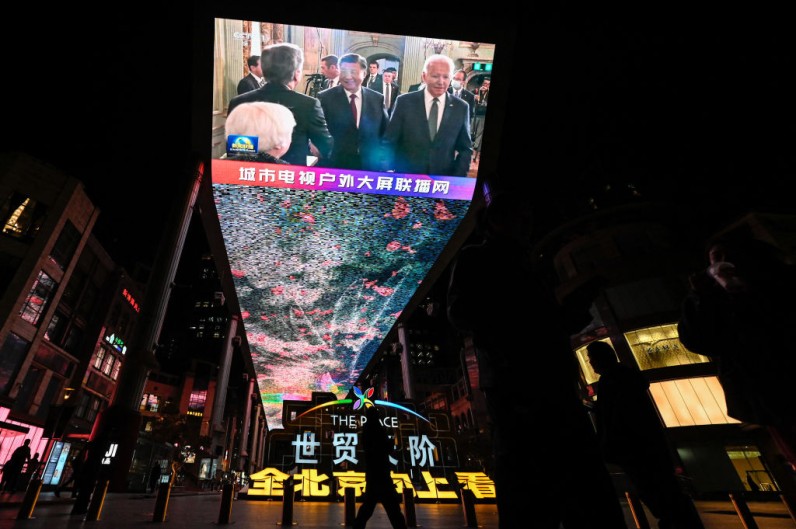The United States (US) and China risk a "new Cold War" as economic and trade conflicts escalate, warned Gita Gopinath, the deputy managing director at the International Monetary Fund (IMF).
Speaking at the 20th World Congress of the International Economic Association in Colombia on Monday, Gopinath emphasized the evolving dynamics, saying that China is no longer the largest trading partner for the US and has lost its footing as an overseas investing hub, Business Insider reported.

IMF Official Says US and China Risk a 'New Cold War'
Reflecting on the historical context, Gopinath drew parallels to the past and emphasized that the pandemic, war, and growing tensions between the US and China have reshaped the current global economic playbook.
She said economic fragmentation is rising, which poses risks to both the US and China as far as erasing the progress made previously and wiping out trillions of dollars in global output.
"If fragmentation deepens, we could find ourselves in a new cold war... If we descend into cold war two, knowing the costs, we may not see mutually assured economic destruction. But we could see an annihilation of the gains from open trade," the IMF official said.
The US advocates "friend-shoring," China emphasizes "self-reliance," and the EU calls for "de-risking," all driven by national security concerns influencing economic policies globally.
Gopinath emphasized that the rules-based system for resolving trade conflicts lacks efficacy when national security concerns take precedence. Countries find themselves navigating strategic competition with ambiguous rules and without an effective referee.
The ongoing trade tensions have resulted in a surge of trade-restricting measures. Last year, almost 3,000 trade restrictions were imposed, nearly three times the number imposed in 2019, according to Gopinath.
China's diminishing role as the largest trading partner to the US is evident, with its share of US imports falling significantly. Since the US-China trade war in 2018, the trade restrictions have curtailed Chinese imports of tariffed products.
Additionally, the IMF official said that China is no longer a major destination for outward US Foreign Direct Investment (FDI), losing its standing to emerging markets like India, Mexico, and the UAE.
Throughout 2023, economic growth trends for the US and China have increasingly
divided. The US has increasingly
appeared on course for a soft landing of its economy, while China has had to navigate a severely problematic real estate sector and a softer-than-expected recovery from the pandemic.
READ ALSO : JPMorgan Chase Is Ready to Leave China if Ordered by US Government, Bank CEO Jamie Dimon Says
Weakening of Direct Links Between the US and China
According to Gopinath, there is suggestive evidence that "indirect links" are simply replacing the direct links between the US and China. She noted that there is growing evidence of "connector" countries positioned to benefit from the shifting dynamics.
She said these countries, like Mexico and Vietnam, have gained the most in US import shares and China's export shares, playing a crucial role in global supply chains.
The IMF official also cited the potential economic costs of fragmentation, emphasizing that if the global economy were to fragment into two blocs centered around the US and China, losses could reach as high as 7% of GDP, disproportionately impacting lower-income and emerging market economies.
Gopinath proposed these three principles for policymakers to navigate the evolving economic landscape: seek a multilateral approach for areas of common interest, adopt a non-discriminatory plurilateral approach to help deepen integration and restrict unilateral policy actions to address externalities while being time-bound.
"Ultimately, policymakers must not lose sight of those gains... It is in their-and everyone's-best interest to advocate strongly for a multilateral rules-based trading system and the institutions that support it," Gopinath said.







Join the Conversation